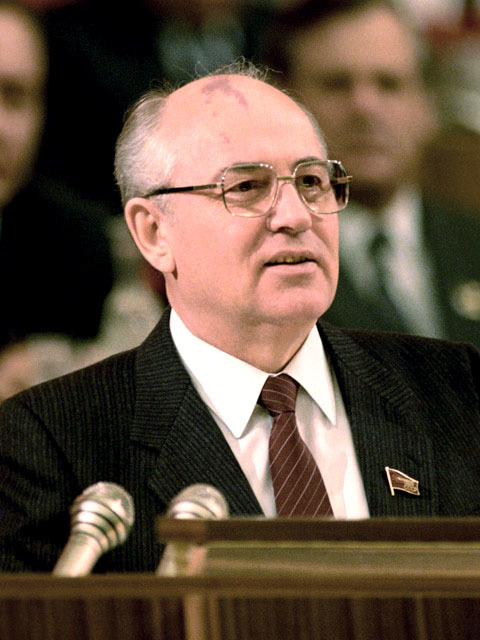
Michail Gorbatschow
Michail Gorbatschow was a prominent Soviet politician and the last General Secretary of the Communist Party of the Soviet Union, serving from 1985 until 1991. He is best known for his reform policies of glasnost (openness) and perestroika (restructuring), which aimed to revitalize the Soviet economy and society but ultimately led to the dissolution of the Soviet Union. Gorbatschow's leadership was marked by significant geopolitical changes, including the end of the Cold War and increased democratic movements in Eastern Europe.
Born on Mar 02, 1931 (94 years old)
Global Media Ratings
Countries Mentioned
No country-level mention data available.
Interactive World Map
Each country's color is based on "Mentions" from the table above.
Recent Mentions
 Germany:
Gorbatschow is referenced as a historical figure who changed the world between 1985 and 1991.
5
Germany:
Gorbatschow is referenced as a historical figure who changed the world between 1985 and 1991.
5
 Switzerland:
Michail Gorbatschow expressed hope for mutual understanding during the Cold War.
7
Switzerland:
Michail Gorbatschow expressed hope for mutual understanding during the Cold War.
7
 Switzerland:
Gorbatschow was a politician credited with providing a period of relative peace in Russia for about thirty years.
6
Switzerland:
Gorbatschow was a politician credited with providing a period of relative peace in Russia for about thirty years.
6
 Switzerland:
Michail Gorbatschow had a significant relationship with Margaret Thatcher during the Cold War.
7
Switzerland:
Michail Gorbatschow had a significant relationship with Margaret Thatcher during the Cold War.
7
 Switzerland:
Michail Gorbatschow's reform policies in the Soviet Union from 1985 opened up opportunities for opposition movements in Eastern Europe.
7
Switzerland:
Michail Gorbatschow's reform policies in the Soviet Union from 1985 opened up opportunities for opposition movements in Eastern Europe.
7
 Switzerland:
Michail Gorbatschow was a key figure in the Perestroika movement that influenced Ion Iliescu's political approach.
7
Switzerland:
Michail Gorbatschow was a key figure in the Perestroika movement that influenced Ion Iliescu's political approach.
7
 Luxembourg:
The INF Treaty was signed in 1987 by then Kremlin chief Michail Gorbatschow and US President Ronald Reagan.
7
Luxembourg:
The INF Treaty was signed in 1987 by then Kremlin chief Michail Gorbatschow and US President Ronald Reagan.
7
 Switzerland:
Michail Gorbatschow was the last General Secretary of the Communist Party and initiated significant reforms in the Soviet Union.
7
Switzerland:
Michail Gorbatschow was the last General Secretary of the Communist Party and initiated significant reforms in the Soviet Union.
7
 Switzerland:
Michail Gorbatschow was the last leader of the Soviet Union who had a different perspective on the Cold War's outcome.
5
Switzerland:
Michail Gorbatschow was the last leader of the Soviet Union who had a different perspective on the Cold War's outcome.
5
 Switzerland:
Michail Gorbatschow was one of the notable guests served by Franz Stainhauser.
7
Switzerland:
Michail Gorbatschow was one of the notable guests served by Franz Stainhauser.
7
